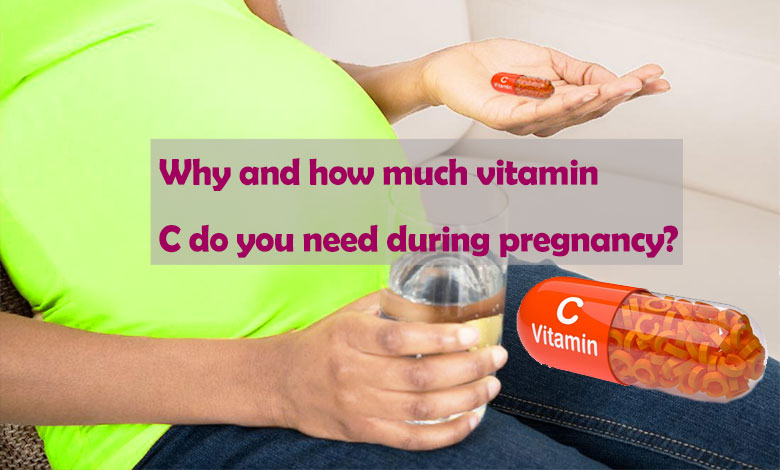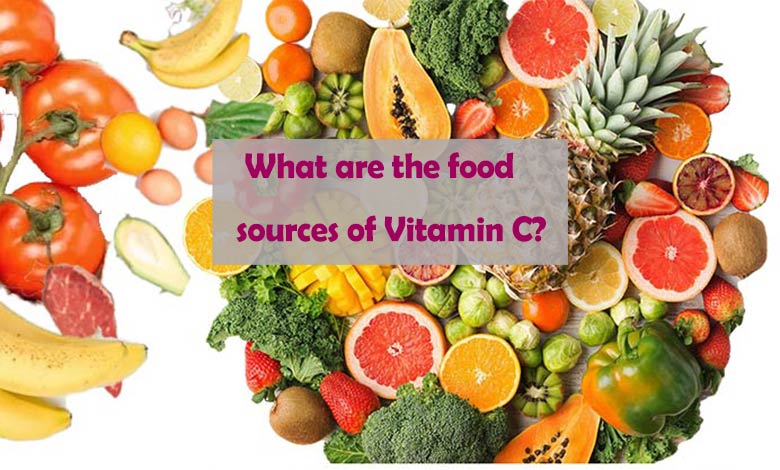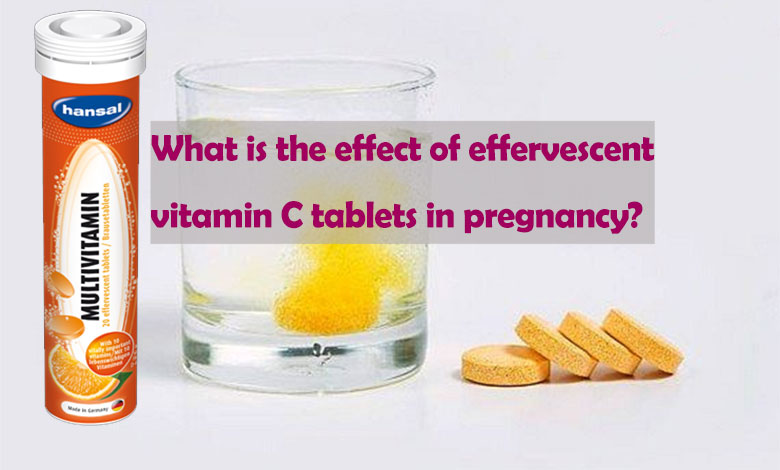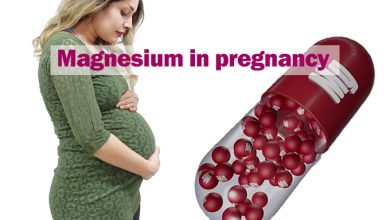Why and how much vitamin C do you need during pregnancy?

Why should we take vitamin C during pregnancy and how much vitamin C do we need during pregnancy?
In this article, learn about the consumption of vitamin C during pregnancy, food sources containing vitamin C, and the need to take vitamin C supplements during pregnancy.
Related article: when to start taking prenatal vitamins
Why do you need vitamin C during pregnancy?
You and your baby need vitamin C daily basis because it is essential for the body to make collagen. Collagen is a structural protein that is a constituent of cartilage, tendons, bones, and skin. Based on studies, some researchers believe that vitamin C deficiency can interfere with the mental development of children.
Vitamin C, also known as ascorbic acid, is essential for tissue repair, wound healing, bone growth and repair, and healthy skin. Vitamin C helps the body fight infections and acts as an antioxidant, protecting cells from damage. Vitamin C also helps the body to absorb iron, especially from plant sources.
What are the symptoms of vitamin C deficiency?
The symptoms of vitamin C deficiency include the following :
- Fatigue
- Swelling if the gum
- Slow healing of cuts and wounds
- Bruised skin
- Rough and dry skin
How much vitamin C do you need during pregnancy?
Women need the following amount of vitamin C during different stages of life:
- Non-pregnant women 18 years and younger: 65 mg per day
- Non-pregnant women 19 years and older: 75 mg per day
- Pregnant women 18 years and younger: 80 mg per day
- Pregnant women 19 years and older: 85 mg per day
- Lactating women 18 years and younger: 115 mg per day
- Lactating women 19 years and older: 120 mg per day.
What are the food sources of Vitamin C?
Citrus fruits are particularly rich in vitamin C, but leafy vegetables and many other fruits and vegetables are also excellent sources of this vitamin.
Choose fresh foods as your source of vitamin C, since heat can destroy this vitamin. In addition, some cereals and breakfast juices are fortified with vitamin C.
Try to include food rich in vitamin C in each meal to maximize the amount of iron absorbed by the other foods you eat. Some foods that contain vitamin C include these:

- 177 ml of orange juice: 62 to 93 mg
- 177 ml of grapefruit juice: 62 to 70 mg
- One kiwi: 91 mg
- Half a cup of raw sweet bell pepper chopped: 95 mg
- One glass of healthy strawberries: 85 mg
- One medium orange: 70 mg
- Half a cup of broccoli, cooked: 51 mg
- Half of a medium grapefruit: 38 mg
- One medium potato, cooked: 17 mg
- One medium tomato: 16 mg
- One cup of raw spinach: 8 milligrams
What is the effect of effervescent vitamin C tablets in pregnancy?
According to research, vitamin C supplements and effervescent vitamin C reduce the risk of pregnancy diseases such as preeclampsia, intrauterine growth restriction, and maternal anemia.
Although taking effervescent vitamin C tablets during pregnancy is useful and reduces the risks of pregnancy, it does not prevent premature birth, prematurity, and fetal death.

In addition, the effervescent vitamin C tablet has side effects, so it is better to take it with a doctor’s prescription.
Can vitamin C effervescent tablets be used as a treatment for preeclampsia?
Preeclampsia is one of the problems and diseases during pregnancy that manifests itself in increased blood pressure and kidney and liver damage. Preeclampsia stops the baby’s growth and can cause the mother to have a heart attack.
How much vitamin C do you need during pregnancy?
During this time, you can get the vitamin C your body needs from different sources. Pregnant women who are 19 years old and older can consume about 85 mg of vitamin C per day. Pregnant women 18 years and younger should consume 80 mg of vitamin C per day. If you have an infant and are breastfeeding, you need 120 mg of vitamin C.
In any case, these numbers and figures are provided for general information. To find out the exact amount of vitamin C you need during pregnancy, you should consult your doctor. Try to eat 3 fruits rich in vitamin C during pregnancy. Oranges, strawberries, and lemons are good sources of vitamin C. Vitamin C side effects usually start from 2000 mg onwards.
Do vitamin C effervescent tablets have any side effects?
Like other pills, this pill has side effects. Even the simplest pills, such as cold pills, have side effects and cause drowsiness. Urinary ascites, drug interaction, cardiovascular disease, mineral absorption, and other unknown effects, including tooth enamel erosion, are among the side effects of excessive consumption of vitamin C-effervescent tablets.
Various models of vitamin C effervescent tablets products :
If you get too much vitamin C, you may develop calcium oxalate kidney stones. Also, some medications, such as birth control pills, interact with vitamin C.
For example, if you regularly take aspirin during pregnancy, pay attention to the fact that taking aspirin and vitamin C increases the urinary excretion of vitamin C.
Excessive consumption of vitamin C effervescent tablets increases the risk of cardiovascular disease. If you take effervescent vitamin C tablets without a doctor’s advice, problems may also arise for your baby.
Reduction of vitamin B12 and copper, erosion of tooth enamel, and sensitivity to vitamin C are among the side effects of excessive consumption of vitamin C effervescent tablets.
Water can neutralize the diuretic effects of vitamin C. If you are pregnant and have a specific illness, be sure to consult your doctor about the dose of vitamin C you receive. People with hemochromatosis, anemia, and thalassemia need a certain amount of vitamin C. Those who suffer from kidney diseases and undergo chemotherapy should definitely consult a doctor about it. Note that in this situation you must be under the supervision of a doctor and follow his instructions. Therefore, taking effervescent vitamin C tablets to help treat preeclampsia is not recommended at all.
How to avoid the negative effects of effervescent vitamin C tablets?
Should you take vitamin C supplements during pregnancy?
If you are concerned about your vitamin C intake during pregnancy, talk to your carer, midwife, or doctor.
